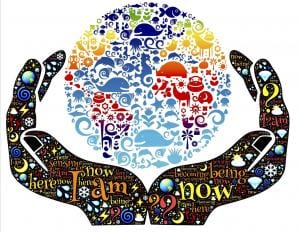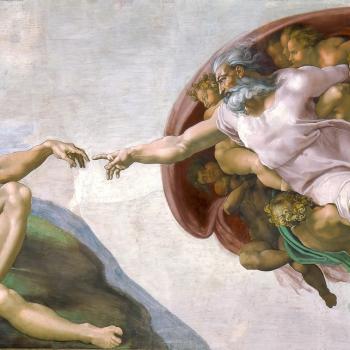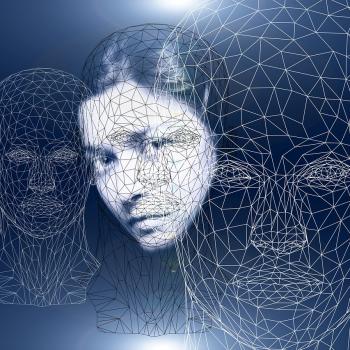[Note: This is the first of a two-part blog]
 Fr. John Garry, beside whom I had the privilege of working for some of my 14 years in Kenya, is the best missionary I have ever known. And missionary is really mission-ary, somebody on a mission, a person of purpose. John’s purpose was to love the people whom he served in very practical ways; attending not just to their spiritual needs but to their food, education and medical needs also.
Fr. John Garry, beside whom I had the privilege of working for some of my 14 years in Kenya, is the best missionary I have ever known. And missionary is really mission-ary, somebody on a mission, a person of purpose. John’s purpose was to love the people whom he served in very practical ways; attending not just to their spiritual needs but to their food, education and medical needs also.
On the day I took over from him in Kipsaraman Catholic Mission – high in the hills of Baringo in the Rift Valley of East Africa – the parishioners came in huge crowds to honor him and give him gifts of maize, eggs, hens and goats. The Parish Council had organized a great farewell celebration and even rented a microphone and loudspeakers for the occasion. Many ‘important’ people made speeches and then there was an ‘open mike.’ One young mother, tenderly clutching her baby, leaned in towards John and said, “If you had breasts, I’d want my infant to suckle from you.” It was the greatest compliment I have ever heard a woman offer a man.
The reason John was leaving Kipsaraman – a mission he had built from scratch – was that our missionary order – The St. Patrick’s Fathers (also known as The Kiltegan Fathers) had been asked to open an apostolate in Southern Sudan which was then in the throes of a deadly civil war. In fact, John would subsequently be abducted by a rebel band and frog-marched over a period of several months before being set free. Gratefully, he is still hale and hearty as of this writing.
At a diocesan celebratory mass in Nakuru cathedral, to wish him God speed, I found myself in tears as the choir sang the mystical words of Isaiah, “Here I am, Lord, is it I Lord? I have heard you calling in the night. I will go, Lord, if you lead me; I will hold your people in my heart.”
This was a promise made not just by Isaiah nor by Fr. John Garry, but by every soul currently incarnated. Each of us is here because our hearts are bursting with love for humanity. Alas, incarnation creates amnesia and most of us have forgotten our fervent promise and are either sleepwalking our way through life or even consciously cursing our lot.
In this two-part essay, I will suggest four questions that might allow us to dissolve the forgetting, reignite the promise and rekindle the love. And here are the questions: “Who is the God that sent me?”, “Who is the ‘me’ that volunteered?”, “Who is the ‘neighbor’ alongside whom I am meant to labor?” and, finally, “What is the mission I signed up for?” The answer to these four questions is the basis for the development of a personal cosmology, an ‘examined life’ without which incarnation is a waste of a ‘spacesuit’. Let’s examine these questions.
- Who is God?
Firstly, I need to say who God is not. He is not the dysfunctional, rage-aholic parent who threw his pre-rational kids (Eve and Adam) out of the Garden of Eden for the childish act of eating forbidden fruit. Nor is he the cosmic psychopath who, in a fit of pique, wiped out all of creation in a flood. Neither is he the prototype for Stalin, Hitler, Genghis Khan… displacing nations and mandating his followers to conduct organized, serial genocides. Hence, I do not believe that God is partisan – there is no ‘chosen race’, nor ‘one true religion’.
Also, I do not believe he is a ‘creator’ – an artisan who daily visits his well-appointed workshop, deciding one day to fashion elephants, the next day, mountains, then daffodils, banana slugs, mosquitoes, boa constrictors, hippos, oak trees, man and, finally, woman. Rather, I believe that everything that exists is a Word of God Made Flesh. There is no ‘creatio ex nihilo’ but, as Plotinus said, ‘emanatio ab Deo.’ We are all the God-force flowing into manifestation.
And God is neither a law-maker, a law-giver, a law-enforcer, nor a law-punisher. Humans infer principles from cosmic observations and social interactions thus creating ‘laws’ that science, ethics and religion then claim are absolute.
If you need a human metaphor, God is more like a doting grandma, telling soothing stories to the grandchild on her lap as she keeps one eye on the oven where she’s baking brownies. Of course, even to call ‘Source’ a person – let alone three distinct persons in one Godhead – is also pure metaphor.
There are no human categories capable of articulating the Isness of God, even though we regularly experience it. The best we can do is to separate the Transcendent, ineffable, mystical gnosis from the Immanent, incarnated expressions in Nature-writ-cosmically-large. Pantheism (the notion that God is the sum total of the manifest realms) is utterly inadequate. Perhaps, Panentheism (the notion that God is both the sum total of the manifest realms and infinitely more, about which we can say nothing; nor even experience) is less inadequate. If Nature is Hamlet, then God is Shakespeare, who was much more than all of his published works.
- Who Am I?
It is really difficult to separate out from this splinter of consciousness I call ‘me’ which is merely the lens through which Divine Consciousness adopts a partial perspective. It’s as if Light – all of it in its very essence – were mistaken for the dot in the night sky we call ‘a star.’ Each star is like an eye peering into the mysterious darkness of intergalactic space, seeking to comprehend the cosmos; and each eye thinking it has cracked the mystery and fully recorded Truth in the twin revelations of religion and science.
It is the gap – the vast separation in scale – between the ego and the soul that creates all of human suffering. The ego is a single star, utterly convinced that it is the All-Seeing Eye of God, and regarding all other stars as pretenders to the throne. The ego is necessary for the experience of incarnation just as long as it realizes it is the servant of the soul and not its master. It is the chauffeur in the limo of life not the VIP resting in the back seat.
All human suffering – personal, interpersonal and even international – comes when separate, insecure but inflated egos battle for the top of the pyramid of power. History – personal, tribal and global – bears gruesome testimony to the results of this megalomania. The mystics have long sought to dissolve this delusion with mantras such as, “I have a body, but I am not my body; I have emotions, but I am not my emotions; I have an intellect, but I am not my intelligence; I have a personality, but I am not even my personality.” Jesus’ teaching on compassion (in Aramaic, ‘rahamim’ – literally, ‘becoming womblike’) is an injunction to serial re-birthing of the self; disidentifying with body, emotions, mind, relationships, professions, religion, race, nationality, in order to give birth to God; to incarnate Source. We must realize that each of us is a ‘Spirit-in-a-spacesuit’, a ‘soul on safari’, a ‘bitesize piece of God having a human experience.’
[This blog will be continued in a second part]
















